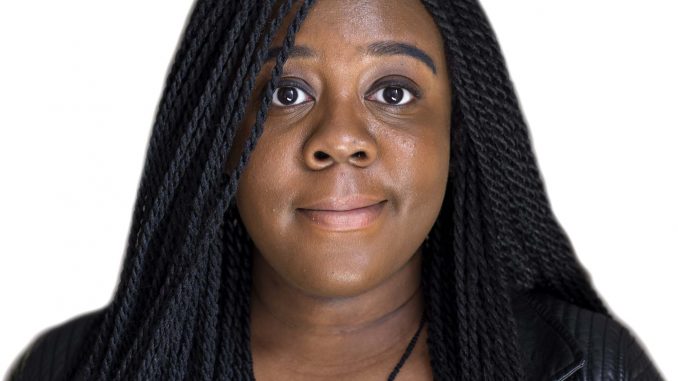
 When I transferred from a small, liberal arts college in Northwestern Pennsylvania to Temple last semester, I noticed a parallel between the cultures.
When I transferred from a small, liberal arts college in Northwestern Pennsylvania to Temple last semester, I noticed a parallel between the cultures.
I left due to many racist experiences I encountered. In my time here, I have not dealt with being chased with a shotgun—like at my old school—but there is a similar rhetoric that compares “Diversity University” to other schools that aren’t as inclusive.
In a 2013 study conducted at Angelo State University called “Understanding the African-American Student Experience in Higher Education Through a Relational Dialectics Perspective,” Dr. Jake Simmons follows 87 African-American students on three colleges over a five-year period. The study details the experiences of the students and found African-American students had a difficult time adjusting to a campus of mostly white students.
Incidents like the alleged recent verbal and physical assault on a black Drexel student by white Temple students and the drawing of a swastika and the “n-word” on someone’s car in the snow are not new at predominantly white institutions—Temple included.
According to Temple’s 2014-15 Fact Book, white undergraduate students make up 57.3 percent of the student body, which makes Temple a predominantly white institution. Black students account for the largest minority at 13 percent, Asian students make up 10.2 percent and Hispanic/Latino students account for 5.7 percent.
While collectively, these percentages are higher than other schools that are more than 70 percent White and the minority population is less than 10 percent, minorities at Temple do not even make up half of the population of students. It feels like the percentage of black students like me make up about as much space as Beury Beach takes up of Main Campus. Because of this, we need to talk about racial differences more often.
While many think the presidential election is more important than the recent Temple Student Government election, racial issues on Main Campus affect all students.
Kelly Dawson, the newly elected Vice President of Services on this year’s TSG winning team, Empower TU, said questions about race “were never explicitly asked during any debates.”
“Most of what we have to say about race on campus that we were able to speak about in the setting of a debate revolved around our principal that diversity is simply not enough,” she said. “We should, as students, strive towards inclusivity.”
I believe TSG elections are just as important as the current president election for Temple students.
At my previous school, I was on the Diversity Initiatives Committee in student government which implemented policies and created events to improve inclusivity between minority students and non-minority students. I was able to see the importance of a university’s student government and how it can change the climate of a campus.
Dawson said the team’s initiatives that revolve around race will be addressed by modifying the TUnity statement that already exists and requiring student organizations to send a representative to the meetings of other organizations that are culturally specific.
The measures Dawson outlined are necessary. Last year during Greek Sing, when a member of Delta Zeta gathered sorority sisters of the historically black National Pan-Hellenic Council on stage she said, “come over here n—-s.”
Also in 2014, a student wrote “Ching Chong” and an email address of “pandaexpress@gmail.com” on a sign-up sheet for a field trip to the Pan-Asian American Community House hosted by Temple University Asian Students Association.
This year, the possibility of an on-campus stadium is exemplifying Temple’s white privilege over the African-American community which has no economic standing to prevent it from happening.
I’m calling for students and administration to make diversity and race relations a priority because it’s clear race is an issue far from being resolved on Main Campus. Our lives are a priority on Main Campus and in the world. Students of color are important and any incidents that lessen our college experience are not acceptable.
Our existence is not the determination of anyone’s comfortability level.
I implore not only black students, but also all minority students on this campus to hold both the federal government and the student government accountable in representing our interests and to better the experience of being at a Predominantly White Institution.
Jaya Montague can be reached at jaya.montague@temple.edu.


Be the first to comment